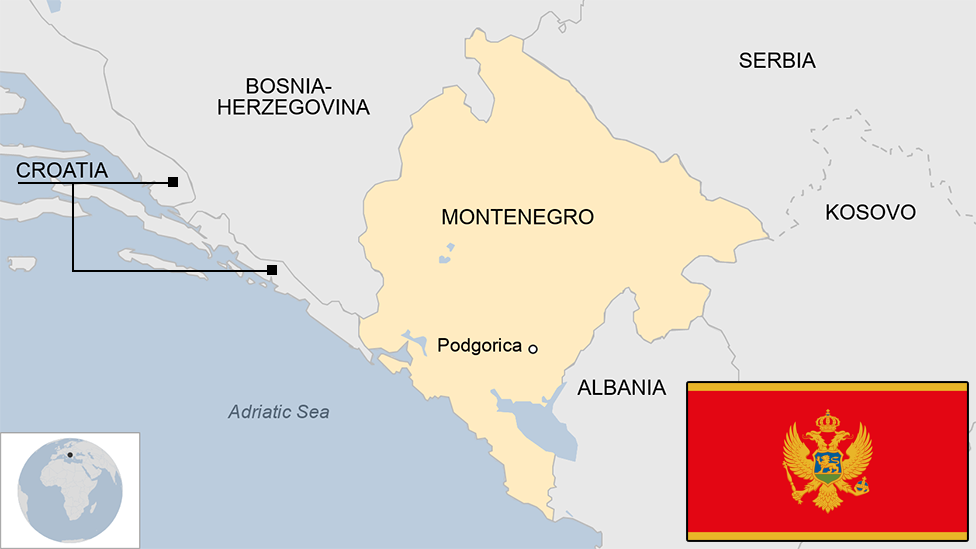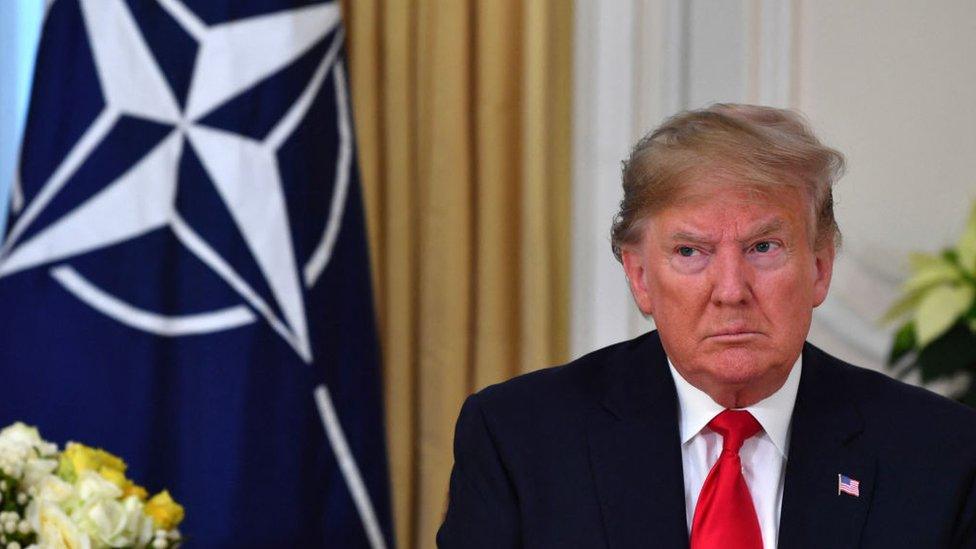Russia urges Montenegro to hold referendum on Nato
- Published
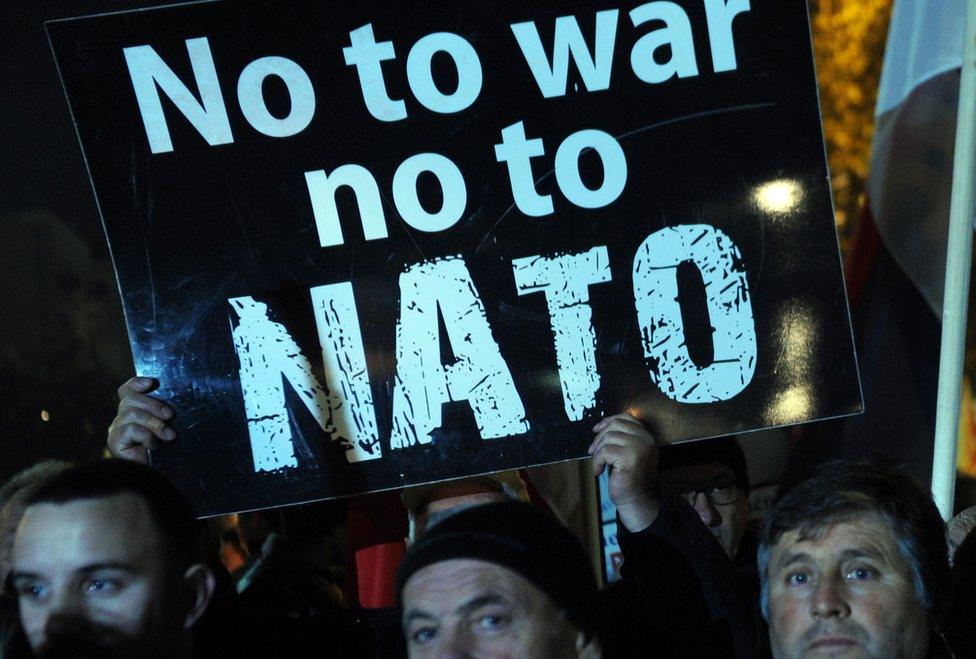
Thousands of protesters took part in a demonstration against membership in the capital, Podgorica, at the weekend
Russia has urged Montenegro to hold a referendum on joining Nato, arguing that less the half of its population backed joining the military alliance.
Foreign Ministry spokeswoman Maria Zakharova spoke of "deep divisions" in the Balkan country over the issue.
Protesters joined a rally on Saturday after Nato invited Montenegro to join.
The invitation comes 16 years after the Western alliance bombed Montenegro during the Kosovo war, when it was still allied with Serbia.
It is Nato's first expansion into eastern Europe since Albania and Croatia joined in 2009. Nato Secretary General Jens Stoltenberg described the decision as "historic".
Accession talks are expected to take about a year to complete.
'Manifestation of democracy'
But Russia has strongly warned against the move.
Ms Zakharova pointed to a "deep split" in Montenegrin society. "We are talking about an internal political crisis accompanied by popular protests," she said.
"It is the people of Montenegro that should make their voice heard in a nationwide referendum on the issue. It would be a manifestation of democracy that we have heard so much about."
Russia has previously said Montenegro's accession would result in "retaliatory actions", although it did not specify what these could be.
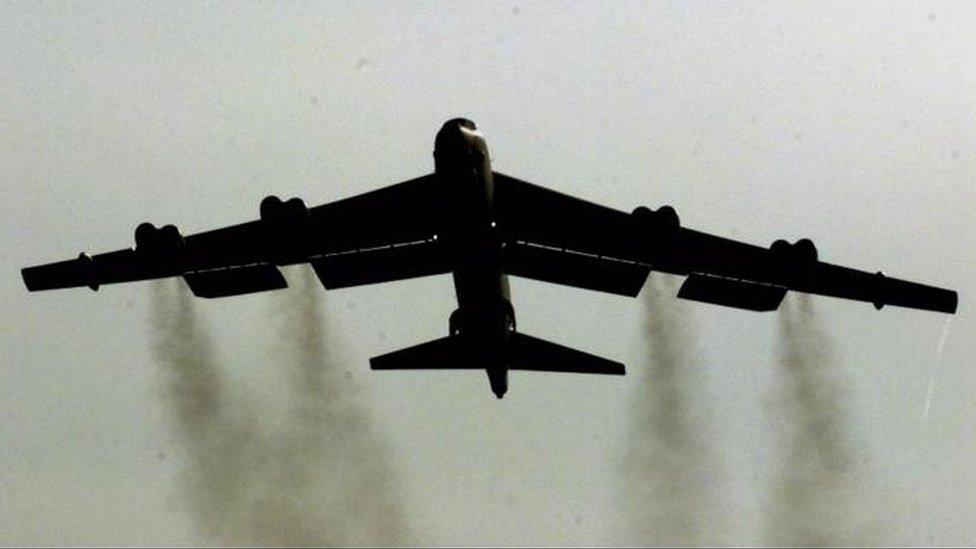
Nato aircraft bombed Montenegro in 1999 during the Kosovo war
Montenegrins themselves are divided over joining.
Several thousand supporters of pro-Russian opposition parties took part in a demonstration against membership in the capital, Podgorica, on Saturday, with some carrying banners saying "Nato killers!''
Many people remain angry that Nato bombed Serbia and Montenegro in 1999 as part of a strategy to halt the killing and expulsion of ethnic Albanians in Serbia's then southern province of Kosovo.
Montenegro and Serbia were at the time still part of rump Yugoslavia but Montenegrins voted for independence in 2006. Since then, it has seen an influx of Russian money, homebuyers and tourists.
Milo Djukanovic's government, which is in favour of joining, has resisted calls from some opposition parties for a referendum on the issue.
Mr Djukanovic said he did not think Montenegrin membership of Nato need cause any worsening of relations with Russia, "Is Montenegro Russia's first friend in Nato? We know it isn't," he told Radio Liberty, external.
Nato diplomats point to polls that suggest public opinion is narrowly in favour of joining.
Apart from Montenegro, the other current candidates for Nato membership are Georgia, Bosnia-Herzegovina and Macedonia.
- Published2 December 2015
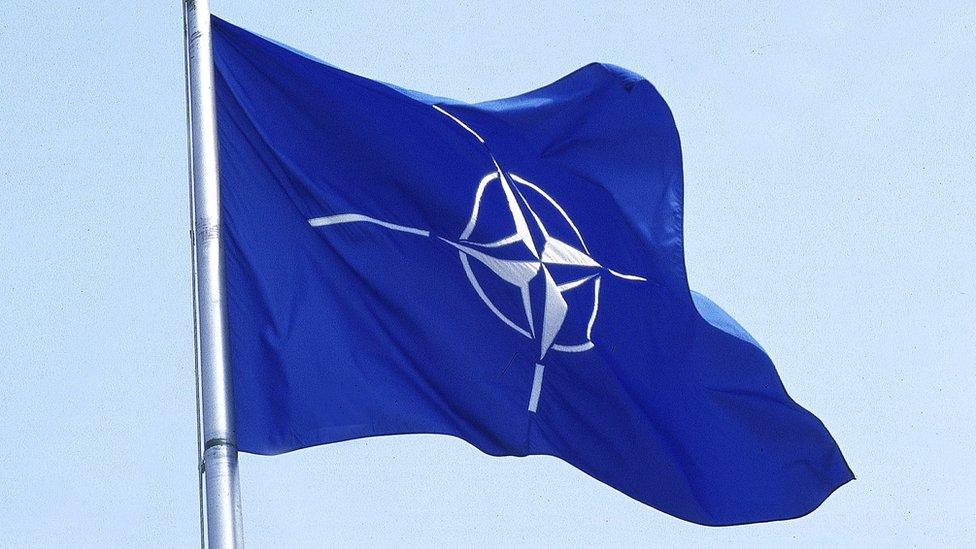
- Published25 October 2015
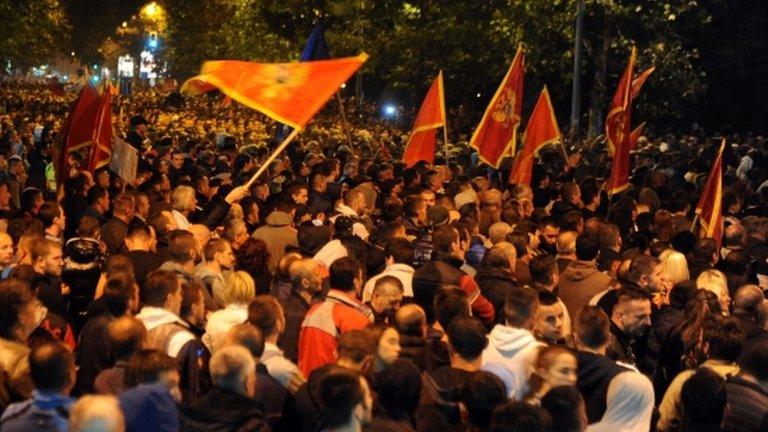
- Published4 November 2015
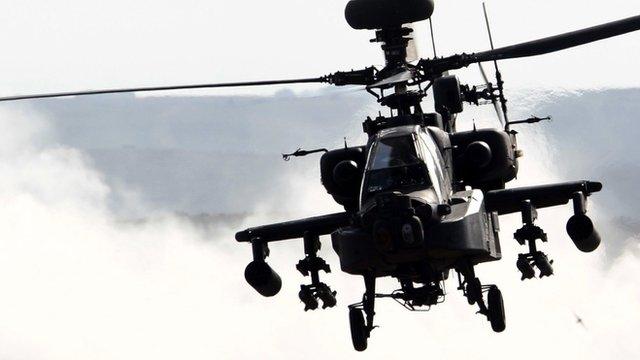
- Published22 May 2023
